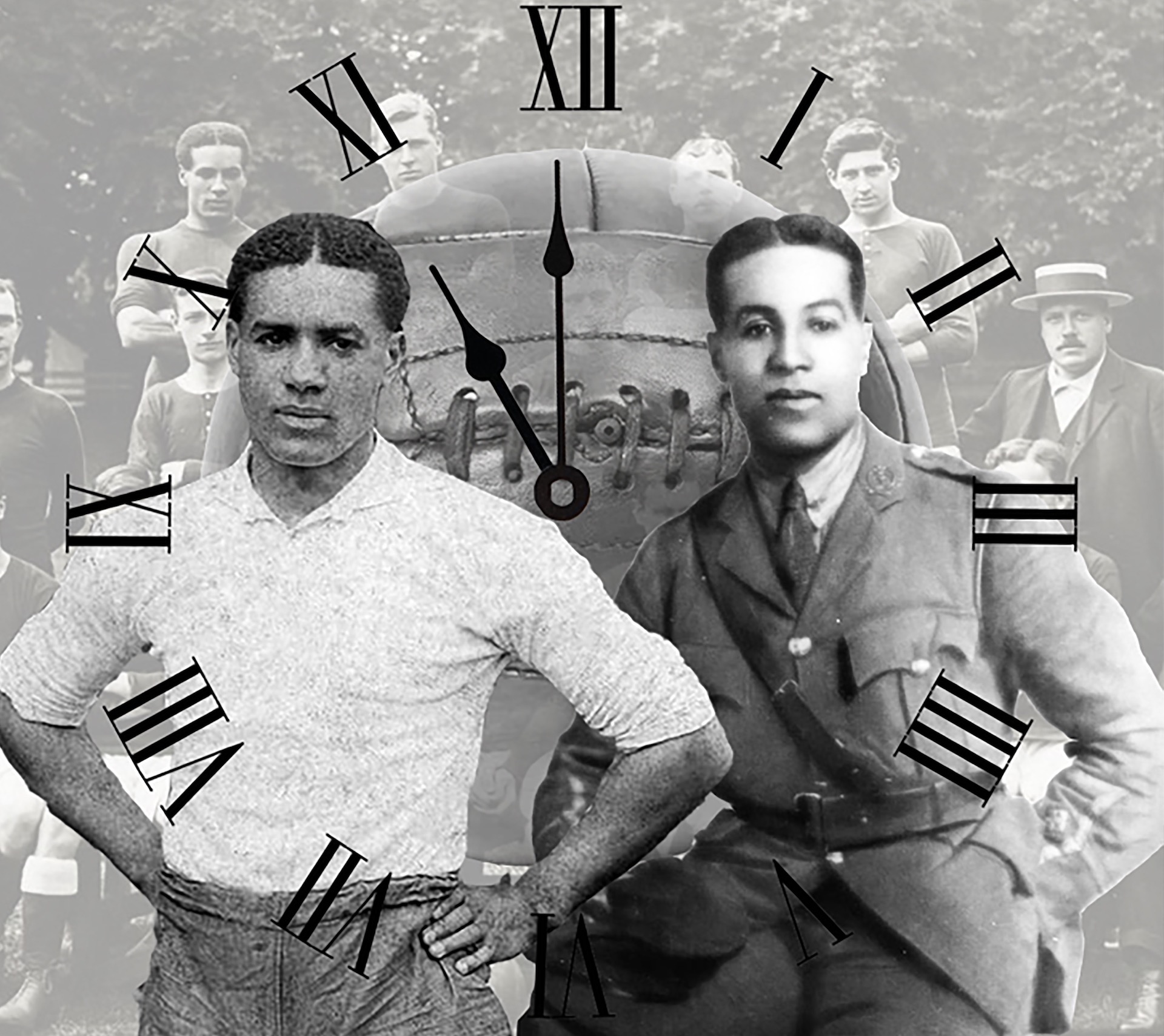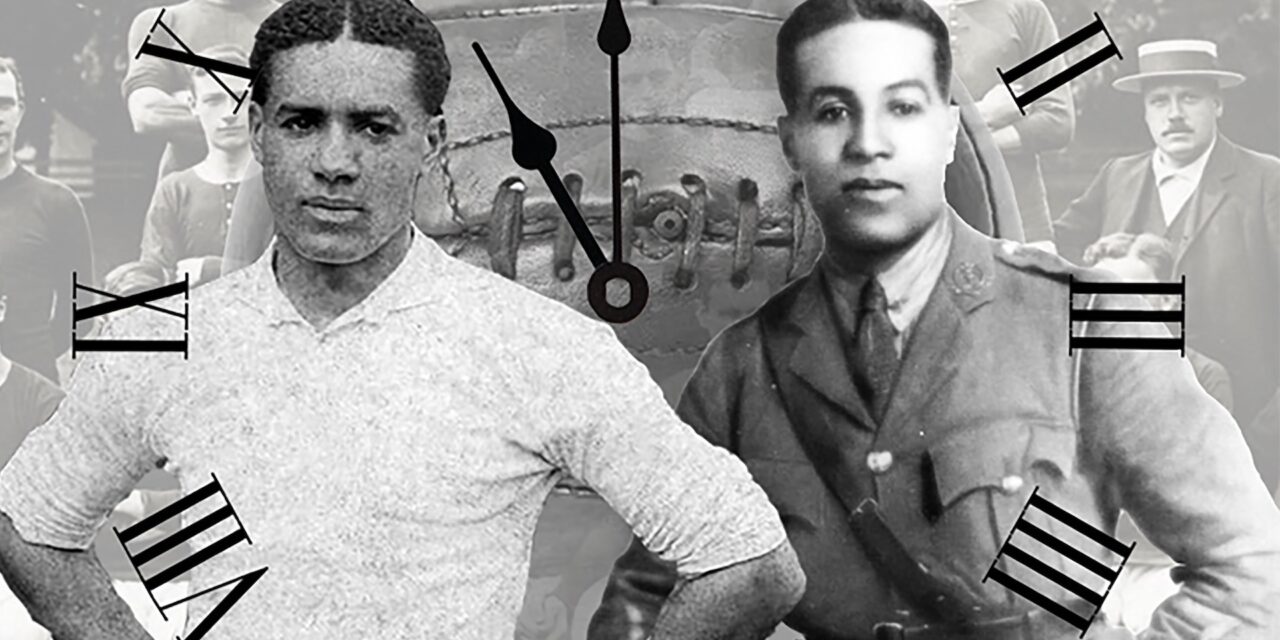
8 – 10 October
I am ashamed to say that until a couple of months ago, I had never heard of Walter Tull. Nor had most people I asked. Yet how can a man who achieved two such notable and seminal firsts remain unknown by so many?
The grandson of a Barbadian slave and orphaned at just eight years of age, Walter Tull nonetheless rose to prominence as the first black footballer to play at the highest level of the English game, playing with distinction, and in the face of considerable racist abuse and prejudice, for both Tottenham Hotspur and Northampton Town. On its own, this landmark achievement might be worthy of a play in his honour, but after being one of the first men to sign up for the Footballers’ Battalion in the First World War, Tull also became the first officer in the British Army of non-European descent in 1917. Tragically, Tull was killed in action while leading his troops in the second Battle of the Somme, a matter of weeks before the end of the war. It seems a play celebrating his remarkable story is considerably overdue.
Fittingly, this evening’s performance marked the start of a national tour throughout October to coincide with Black History Month; the play is produced in conjunction with the anti-racism charity Show Racism the Red Card. Award-winning playwright Dougie Blaxland spent much of his early life in Kent, not far from Folkestone where Tull was born to his Barbadian father Daniel and English mother Alice. Our Little Hour is a powerful and very moving account of Tull’s life, cleverly resurrecting Walter as narrator, along with his parents, to trace his journey from Kent to an orphanage in Bethnal Green, and from North London and Northampton to the battlefields of northern France.
A cast of just three are ever-present on the stage throughout this touching and bittersweet musical journey, with Leon Newman excelling as Walter in his professional stage debut, and Neil Reidman and Susie Broadbent equally captivating as Daniel and Alice. Whilst simultaneously multi-roling to present all the minor characters in Tull’s life – thereby showing an impressive flexibility and in Broadbent’s case, a command of a wide range of accents – the three leads bring Walter’s story to life with warmth, affection and poignancy, making clever and imaginative use of the most minimal of stage sets and props, and featuring some highly effective sound and light effects, as well as some clever choreography. More than a dozen original songs, redolent of the late Victorian and Edwardian eras in which the story unfolds, blend humour with the heartfelt, and whereas the first act, a little long at seventy minutes, feels pedestrian in places, the show really comes to life in the second half when the full power and significance of Tull’s life is explored, from the hostile terraces of Bristol City to the brutal terrors of trench warfare. The story is perfectly suited to, and indeed requires, the smaller and more intimate Irving Studio setting, which serves to bring the drama, smoke, abuse, gunfire, passion and peril quite literally within the audience’s reach, and where the tender love and happiness of Walter’s younger years are starkly juxtaposed with more adult themes which the tale also presents once Tull is orphaned.
It is both a powerful and highly enjoyable show, but one which also endeavours to shine a necessary light on an important man whose story needs to be heard. Tull was recommended for, yet never received, the Military Cross for “gallantry and coolness under fire”. Our Little Hour sets out to help correct this historical and cultural injustice. I hope it succeeds.
★★★★☆ Tony Clarke 9th October 2024


